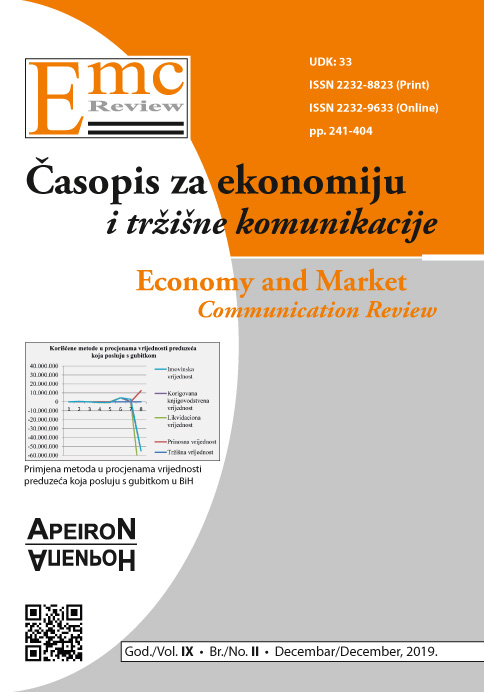The Vienna Initiative as an Example of Cross-Border Policy Coordination – Case of Bosnia and Herzegovina
DOI:
https://doi.org/10.7251/EMC1902352JAbstract
At the very beginning of global economic and financial crisis, foreign capital started to withdraw from banking sector of Bosnia and Herzegovina. There was a huge danger that the domestic banking sector would suffer great instability due to high exposure to foreign investors. The big part of foreign funds was in the form of hot money, and the European banks highly exposed to Central and Southeast Europe had to act. EBRD and IMF launched a rescue plan aimed to slow down the deleveraging process and to preserve financial stability. The foreign banks promised that the pace of funds withdrawal would be accommodated to the preserving of home countries financial stability. The meeting about this issue was held in Vienna, which is an international banking hub for part of Central and especially for Southeast Europe. According to the meeting’s place, rescue plan got the name Vienna Initiative (VI). VI was a cross-border activity with the final aim to reduce systematic risks appeared because of the withdraw of foreign capital from BH banking sector. In this view, VI was specific m macroprudential tool for keeping financial stability. In addition, in a broader view, it was cross-border macroprudential policy coordination plan. For Bosnia and Herzegovina, the Vienna Initiative came in the right moment. Without VI it would be very hard or maybe even impossible for Bosnia and Herzegovina to preserve financial stability and to prevent the balance of payment crisis, and even currency crisis and banking crisis. Thus, in the case of BH, VI was very successful cross-border policy coordination due to the large exposure of domestic banking sector to the foreign investors. At the pick of crisis foreign liabilities of BH banking sector were 6 billion BAM (12/2008) i.e. 32,5% of total liabilities or 29% of total asset. All developed models show that foreign liabilities have a great influence on loans, deposits, and industrial production. The unexpected fall in foreign liabilities would have adverse and very strong effects on deposits, loans, and industrial production. All models show that foreign liabilities significantly affect economic and financial activity in Bosnia and Herzegovina. We used different techniques to show influences of foreign liabilities on domestic variables; Vector autoregression in level and in differences, Vector error correction model, Conditional VAR, and multiple regression models. All models show that in case of disorderly withdrawal of foreign funds, fall in industrial production, deposits, and loans would be much higher than in the case when VI is applied. The main conclusion of the article is that VI helped BH to avoid huge and long negative credit growth i.e. credit crunch, and to avoid deeper economic crisis.Downloads
Published
2020-03-03
Issue
Section
Чланци
